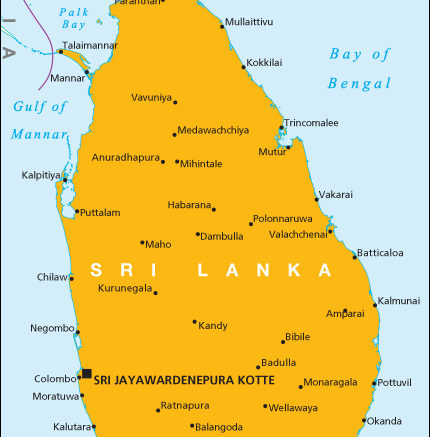The island nation of Sri Lanka has, in the aftermath of the Easter attacks by Islamic terrorists on Christians and on the occupants of the country’s hotels, decided to get tough on the problem of Islamic extremism. In a move that should in my view be copied by other nations facing Islamic terrorism problems, Sri Lanka has expelled 600 foreign nationals including 200 Islamic clerics.
Whilst some of those whom the Sri Lankan government is removing are merely visa over-stayers, the fact that so many Islamic clerics have been removed is highly significant. This is an awful lot of Islamic clerics to remove at one time and suggests that prior to the Easter attacks, foreign Islamic clerics were operating and possibly radicalising Sri Lanka’s Muslims under the radar for a long time.
What’s interesting is that these clerics entered Sri Lanka legally and didn’t just slip in without permission. Expelling these clerics, who had previously had a right of entry, looks to me like this could be the start of a major crackdown on Islamic radicalisation in Sri Lanka. The Sri Lankan government has said that the number of foreign clerics had ‘mushroomed’ in recent years and it may well be that this increase in foreign clerics either coincides with or has been a driver of Islamic radicalism.
The Indian news outlet NDTV (h/t ROP) has said that the Sri Lankan government has not stated which countries those expelled from the country have come from but the outlet said that their police sources have told them that the majority of those removed come from Pakistan, the Maldives, Bangladesh and India. Although these were the over-stayers, these are also nations from which many Islamic terrorists hail from, especially Pakistan. The NDTV article does not say which nationalities that he expelled clerics come from, but I would be unsurprised if they were not from either the listed nations or from one of the Gulf States that pump millions into promoting Islam worldwide.
The Sri Lankan government has been caught out really badly by a level of Islamic radicalism that they may not have realised until the Easter attacks, just how serious the problem was. These actions by the Sri Lankan government are in my view a kind of ‘catching up’ with a problem that may have been festering for years.
Finally, it’s interesting and indeed worrying to compare how Sri Lanka has behaved with regards to possibly troublesome Islamic clerics from overseas and how the United Kingdom behaves. Whilst Sri Lanka’s government goes in hard and kicks out many of the clerics who may be creating radicalism, the British government on the other hand lets in far too many Islamic clerics who any reasonable person would say were extremists. Sri Lanka has in expelling foreign Islamic clerics done the right thing in order to slay the monster of Islamic extremism and maybe it’s a course of action that other nations, including Britain and the USA should follow as well.




